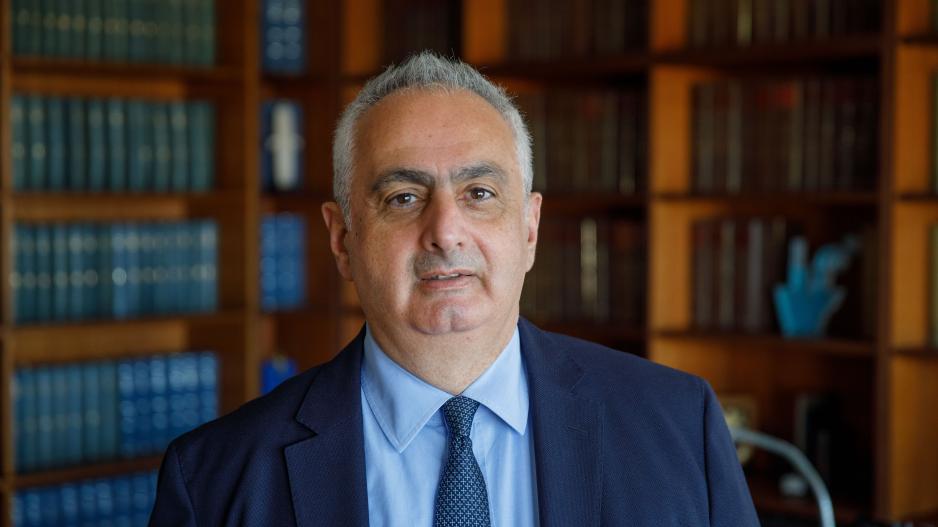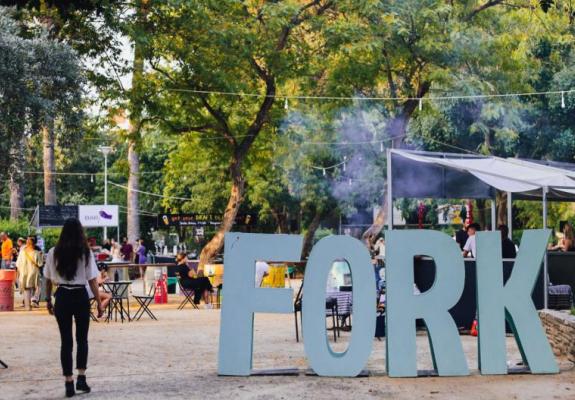On the Informal Dinner in New York
The Question Remains: What Will We Do to Ensure That This Opportunity Is Not Wasted?
On October 15, an informal dinner will take place in New York, attended by the UN Secretary-General, the President of the Republic, Nikos Christodoulides, and the leader of the Turkish Cypriot community, Ersin Tatar. Given the current global crises demanding mediation, such as those in Ukraine, the Middle East, and Sudan, where hundreds of lives are lost daily, one might wonder why the UN Secretary-General would invest his time in a frozen conflict.
Perhaps it is because he understands that leaving a conflict to simmer will inevitably lead to a more critical situation down the line, making resolution far more difficult.
While the urgency of the Secretary-General's agenda may dictate that the dinner takes place in New York, the leaders could have met in Nicosia with the UN (and saved on costs). However, the fact that there is any movement at all is surely not coincidental.
The question remains: what will we do to ensure that this opportunity is not wasted?
The uncompromising stance of Turkey is a significant reason for the failure to restart negotiations. We need to leverage the issue of energy, acknowledging Turkey’s role in the wider Southeastern Mediterranean region, as well as the positive agenda with the EU. Beyond this, I believe that the lack of a concrete negotiation plan is another obstacle preventing us from taking the final steps toward a solution. As a lawyer, I know the importance of a negotiation having a clear beginning, middle, and end—most importantly, with consequences for the party responsible for any failure in the process.
Unfortunately, past negotiations have shared the common element of lacking a predefined procedure, as well as a mechanism for managing failure. In my view, the informal dinner could be an opportunity to introduce the need for a clear procedural framework to be followed, regardless of the content, which has been debated for years.
I dare to suggest that, in the event of a breakdown, the responsible party should face consequences. In fact, these consequences could be predetermined so that everyone knows what will happen, both in the case of successful negotiations and in the event of failure. Until now, no such consequences have existed. A mechanism to resolve this negotiation, with predefined consequences, could be designed and agreed upon to ensure a guaranteed outcome.
Aside from these broader positions, I would also like to present three examples of confidence-building measures that could be agreed upon initially so that the informal dinner concludes with tangible results: (a) Missing Persons, (b) Trade, and (c) Property.
Regarding missing persons, I believe it is time for transitional justice to be implemented. This concept is well-known in societies that seek to confront and overcome traumatic experiences. It acts as a catalyst for creating new conditions that will guide societies back onto a peaceful and progressive path. A classic example is the Truth and Reconciliation Commission in South Africa, led by Archbishop Desmond Tutu and President Nelson Mandela. A more recent example is Colombia, where President Juan Manuel Santos Calderón and Foreign Minister María Ángela Holguín successfully brought peace to their country.
There is already a specific proposal from the NGO "Truth Now" outlining how this could be achieved. The President of the Republic of Cyprus, in his public statements, has already expressed positive support for this, and I hope that the Turkish Cypriot leader will do the same. An agreement must be reached to amend the mandate of the Committee on Missing Persons (CMP), so that the de facto immunity from 1990, in exchange for truth, is also established legally. At the same time, new regulations must be enacted governing the operation of the Truth Commission, which would be a natural evolution of the existing CMP.
As a second measure, the suggestion to expand trade between the two communities and the return of Famagusta could be reconsidered. According to the Green Line Regulation, this trade currently amounts to approximately €18 million annually, conducted in cash because bank accounts on both sides of the Green Line are not allowed for members of the opposite community. The development of trade has always been crucial in reconciliation between peoples. Let us not forget that the European Union itself was built on this foundation after World War II. The liberalization of the banking system is necessary to allow trade to develop, and the applicable law must be agreed upon.
This issue could be resolved by applying the law that was in effect in the Republic of Cyprus as of December 31, 1963, to govern these specific commercial relations. Finally, through an arbitration process between the two Chambers of Commerce, disputes could be resolved, and compensation paid, guaranteed by the Chambers themselves.
This would be a tangible step that could be implemented within the current framework.
Lastly, a broader confidence-building measure could be the creation of a bicommunal technical committee on property. In the first phase, this committee could address discrepancies concerning Greek Cypriot property ownership in the fenced-off town of Famagusta. Following this, the Turkish Cypriot community could allow Greek Cypriots to access their land registry, and the Republic of Cyprus could provide information to Turkish Cypriots regarding their inherited properties in the free areas, with special reference to any compensations paid by the Republic.
I hope that these simple steps could lay the groundwork for further discussion so that we do not lose yet another opportunity to resolve the Cyprus issue before it ends up on the Secretary-General's emergency agenda.






